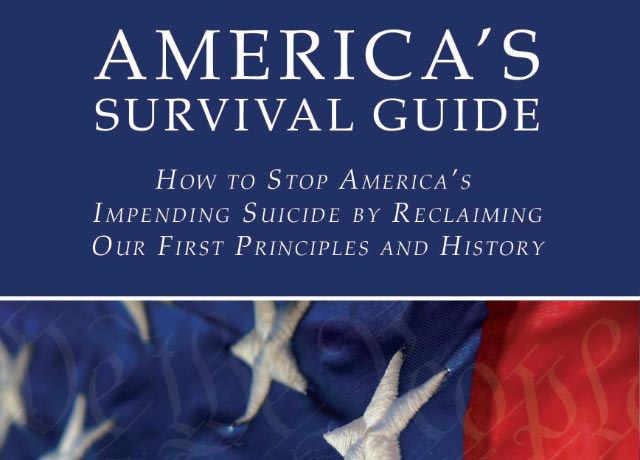In a time of crisis – when we most need to embrace our Constitution and founding principles –we are most tempted to ignore them. Today’s crisis involving the meltdown of Fannie Mae, Freddy Mac, American International Group Inc (AIG), Lehman Brothers, and the financial markets presents such an opportunity in spades. However, the Constitution and our founding history provide enormous insight for today’s political and economic leadership – if they would pay attention. After all, the origin of the American Constitution is just as much the product a severe financial crisis as it is the American Revolution.
Most Americans today have seem to forgotten that during the period between the winning of the American Revolution in 1781 and the ratification of the Constitution in 1789, America faced a severe financial crisis. As the result of the Revolution and accompanying disruption of trade with Great Britain, many indebted farmers and merchants faced dire economic circumstances. They were unable to pay their mortgages and financial institutions were calling in their debts.
The response to the crisis in many state capitols was to issue nearly worthless paper money and enact debtor relief legislation that invalidated previously legitimate private contracts. Some legislatures delayed or reduced the payment of public and private debts, refused to pay their quotas of national expenses, and raised their own salaries. Many restless debtors took the law into their own hands and sacked courthouses to prevent them from rendering and enforcing judgments against debtors. The result was economic devastation.
Most Americans, however, strongly believed in the unalienable rights to property and to pursue happiness without undue government interference. Indeed, James Madison – the father of the Constitution – observed that “protection of different and unequal faculties of acquiring property” was the “first object” of government. When reviewing the response of the states in connection with the financial crisis, Madison remarked that such laws “are contrary to the first principles of the social compact and to every principle of sound legislation.”
At the same time, states were engaged in trade wars with each other. They established tariffs and other taxes upon each others’ goods. Economic chaos was supreme.
In the wake of this crisis, the Founding generation convened the Constitutional Convention to establish a strong federal government to protect the unalienable rights of the people. The new Constitution enabled the creation of national market by granting Congress the authority to regulate interstate commerce. Trade barriers between the states were barred. The states were prohibited from issuing paper money and from impairing the obligations of contracts.
Other safeguards were placed in the Constitution to protect the unalienable rights of the people. To protect the taxpayers, for example, only the House of Representatives – the branch of government most representative and closest to the people – is permitted to originate any spending bills. Under the 5th Amendment, the taking of private property can only occur for public use, and only with just compensation.
Just a few days ago, the Federal Reserve Bank of New York agreed to lend AIG $85 billion and purchase 79.9% of the insurance giant – with no action from the House of Representatives or Senate. The obligations of Fanny Mae and Freddy Mac have been taken over by the federal government. In an almost forgotten move, the Treasury – again with no action from Congress – announced it would use a $50 billion Treasury fund to guarantee money-market mutual fund accounts. Secretary of Treasury Henry Paulson is calling for the assumption of $700 billion of bad debts from financial institutions through a taxpayer backed bailout, with extraordinary czar like powers over the economy to be assumed by him – an unelected cabinet official.
How any of this is consistent with the Constitution or our founding principles has not been explained. Nor has anyone really bothered to ask. Yet, the Constitution was carefully crafted to preserve our liberty through such provisions as the Bill of Rights, the separation of powers, checks and balances, federalism, and enumerated powers. Underlying the Constitution is a set of founding First Principles – the rule of law, equality, unalienable rights, the Social Compact, and limited government – all of which are important to maintaining our freedom.
Before we continue to lurch through this crisis, we should demand that our leaders only take actions that are consistent with the Constitution and the First Principles. After all, history is replete with examples of a people losing their liberties when a crisis arises. We are fools to think that we must be an exception. After all, if we are going to ignore the Constitution during a time of crisis, then is not worth the paper it is printed on.
[First published on-line at freep.com]
For more about the necessity of adhering to our First Principles and the Constitution, visit http://www.americassurvivalguide.com/index.php
Subscribe to:
Post Comments (Atom)






No comments:
Post a Comment